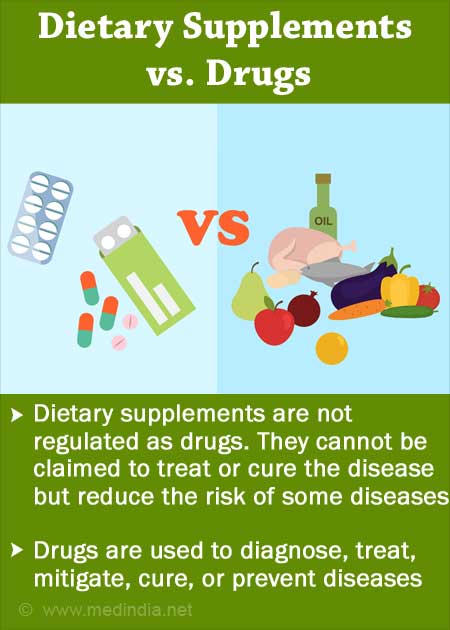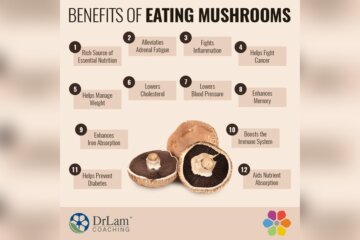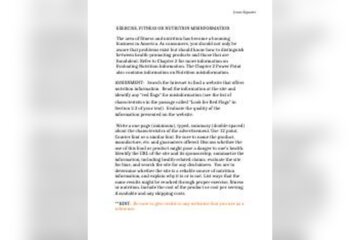What is the Difference in Supplements and Drugs? Supplements are products taken to enhance health, while drugs are medications used to treat or prevent diseases. Both serve different roles in health management.
Supplements include vitamins, minerals, and herbs that support overall well-being. They are available over-the-counter and are not regulated as strictly as drugs. Drugs, on the other hand, undergo rigorous testing and approval processes by regulatory bodies like the FDA. They are specifically designed to diagnose, treat, or prevent medical conditions.
Understanding these differences helps consumers make informed choices for their health. Proper use of supplements and drugs can lead to better health outcomes and improved quality of life. Always consult healthcare professionals before starting any new supplement or medication.

Credit: drugabuse.com
Introduction To Supplements And Drugs
Many people use supplements and drugs to improve their health. But, they often confuse the two. It is important to know the difference. This will help you make better choices for your health.
Defining Supplements
Supplements are products you take to add nutrients to your diet. They can come in many forms. These include pills, powders, and liquids. Supplements often contain vitamins, minerals, or herbs. They help fill gaps in your diet.
People use supplements for various reasons. Some want to boost their immune system. Others aim to improve their skin or hair. It is crucial to remember that supplements are not a substitute for a balanced diet. They are meant to complement it.
Defining Drugs
Drugs are substances used to treat or prevent diseases. They are prescribed by doctors. Drugs can be over-the-counter or prescription-based. They work by altering the way your body functions.
Drugs go through strict testing before they are allowed in the market. This ensures they are safe and effective. Common examples include antibiotics and pain relievers. Using drugs without a doctor’s advice can be harmful.
| Aspect | Supplements | Drugs |
|---|---|---|
| Purpose | Fill nutritional gaps | Treat or prevent diseases |
| Form | Pills, powders, liquids | Pills, injections, creams |
| Regulation | Less strict | Highly regulated |
Legal Regulations
Understanding the legal regulations of supplements and drugs is crucial. Both have different rules and oversight. This section will explore these differences.
Supplement Oversight
Supplements are regulated by the Food and Drug Administration (FDA). They are treated as a category of food. This means they do not need approval before hitting the market. Manufacturers are responsible for ensuring safety.
Key points for supplement oversight include:
- Manufacturers must ensure their products are safe.
- Labels must be truthful and not misleading.
- The FDA can take action if a supplement is found unsafe.
Supplements can include vitamins, minerals, herbs, and amino acids. They do not need to prove their effectiveness before sale.
Drug Approval Process
Drugs undergo a stringent approval process by the FDA. They must prove both safety and effectiveness. This process involves several stages.
Key stages in the drug approval process include:
- Preclinical testing on animals.
- Clinical trials on humans, in three phases.
- Review of trial results by the FDA.
- Approval if the drug is safe and effective.
Drugs need a prescription from a doctor. They are strictly regulated and monitored post-approval for any adverse effects.
Intended Use And Benefits
Understanding the difference between supplements and drugs is important. Both have unique intended uses and benefits. Supplements are usually taken to fill nutritional gaps. Drugs, on the other hand, are prescribed to treat medical conditions.
Supplements For Nutritional Gaps
Supplements are products designed to add nutrients to your diet. They can come in various forms such as pills, powders, or liquids. People take supplements to ensure they get enough essential nutrients.
Common supplements include vitamins, minerals, and herbal extracts. These are generally used to improve overall health. For example, Vitamin D supplements can help with bone health. Iron supplements can help prevent anemia.
Supplements are not meant to cure diseases. They are used to support a healthy lifestyle. Always consult a healthcare provider before starting any supplement.
Drugs For Medical Conditions
Drugs are substances prescribed to treat or manage medical conditions. They are regulated by health authorities like the FDA. Drugs undergo rigorous testing before approval.
There are different types of drugs such as antibiotics, pain relievers, and antidepressants. Each type has a specific purpose. For example, antibiotics fight bacterial infections. Pain relievers like ibuprofen reduce pain and inflammation.
Drugs are usually prescribed by doctors. They can have side effects and interactions. It’s important to follow the prescribed dosage and instructions.
| Aspect | Supplements | Drugs |
|---|---|---|
| Purpose | Fill nutritional gaps | Treat medical conditions |
| Regulation | Less regulated | Strictly regulated |
| Forms | Pills, powders, liquids | Pills, injections, syrups |
| Side Effects | Usually mild | Can be severe |
| Prescription | Not required | Required |

Credit: www.semanticscholar.org
Ingredients And Composition
Understanding the ingredients and composition of supplements and drugs is crucial. Supplements and drugs have different sources and purposes. This section will delve into the details of their ingredients and composition, highlighting key differences.
Natural Vs. Synthetic Sources
Supplements often come from natural sources. These include plants, herbs, and animal products. For example, vitamins like Vitamin C are derived from fruits. Minerals like iron are extracted from natural ores.
Drugs, on the other hand, are usually made from synthetic sources. Pharmaceutical companies create them in labs. These synthetic compounds are designed to target specific conditions. They often have precise chemical structures that mimic natural substances.
Active Ingredients In Drugs
Drugs contain active ingredients that are responsible for their therapeutic effects. These ingredients are carefully tested and regulated. They are designed to treat or prevent specific diseases.
Active ingredients in drugs are potent. A small amount can have a significant effect. This is different from supplements, which often contain lower doses of active ingredients.
| Aspect | Supplements | Drugs |
|---|---|---|
| Sources | Natural (plants, herbs, animals) | Synthetic (lab-created) |
| Purpose | Support health | Treat or prevent diseases |
| Active Ingredients | Lower doses | High potency |
Both supplements and drugs play important roles in health. Understanding their ingredients and composition helps in making informed choices.
Efficacy And Potency
Understanding the difference in efficacy and potency between supplements and drugs is crucial. These two categories are often misunderstood. They serve different purposes and operate under different regulations. This section delves into these differences, providing a clear understanding.
Supplement Variability
Supplements often come with varying levels of efficacy and potency. This variability is due to several factors:
- Ingredients: Different brands use different ingredients.
- Concentration: The amount of active substance can vary.
- Manufacturing Process: Processes differ between companies.
- Source of Ingredients: Natural sources can vary in quality.
Consumers need to be aware of these factors. It helps in choosing the right supplement. Always read the labels and consult a healthcare provider. This can ensure you are getting an effective product.
Clinical Trials For Drugs
Drugs go through rigorous clinical trials before approval. These trials are essential for proving their efficacy and potency. The process involves several phases:
- Preclinical Testing: Tests on cells and animals.
- Phase 1 Trials: Small group of healthy volunteers.
- Phase 2 Trials: Larger group with the condition.
- Phase 3 Trials: Large-scale testing on diverse groups.
- Phase 4 Trials: Post-marketing surveillance.
These trials ensure that drugs are safe and effective. They help determine the correct dosage and identify side effects. This rigorous process is why drugs are often more potent than supplements.
Understanding these differences can guide better health choices. It highlights the importance of consulting healthcare professionals. They can provide advice tailored to individual needs.

Credit: www.medindia.net
Safety And Side Effects
Understanding the safety and side effects of supplements and drugs is crucial. Both can impact your health, but their risks and interactions differ. Let’s delve into the details to help you make informed choices.
Risks Associated With Supplements
Supplements are often seen as natural and safe. But they can still pose risks. Some supplements may cause adverse reactions or interfere with medications.
- Unregulated Ingredients: Supplements are not strictly regulated by the FDA.
- Overdosing: Taking too much of a supplement can be harmful.
- Contamination: Some supplements may contain harmful substances.
Always consult a healthcare provider before taking new supplements.
Drug Side Effects And Interactions
Drugs are strictly regulated and tested for safety. But they can still cause side effects and interact with other medications.
- Common Side Effects: These can include nausea, dizziness, and headaches.
- Severe Reactions: Some drugs can cause serious health issues.
- Drug Interactions: Combining drugs can lead to unexpected side effects.
It’s essential to follow your doctor’s instructions and report any adverse effects.
| Factor | Supplements | Drugs |
|---|---|---|
| Regulation | Less strict | Highly regulated |
| Side Effects | Can occur, less common | More common, can be severe |
| Interactions | Possible with medications | Often, needs monitoring |
Remember, both supplements and drugs have their place in healthcare. Knowing the risks helps you make safer choices.
Manufacturing Standards
Understanding the manufacturing standards for supplements and drugs helps us see their differences. Both need to be safe and effective. But they follow different rules and processes. This section covers their quality control and pharmaceutical-grade manufacturing.
Quality Control For Supplements
Quality control ensures supplements are safe and effective. Supplements must meet Good Manufacturing Practices (GMP). GMP guidelines cover everything from ingredient sourcing to packaging. They help avoid contamination and errors.
Supplements undergo tests for purity, strength, and composition. These tests confirm that the label matches the contents. Some companies do extra testing, but it’s not required by law.
Here is a table summarizing the key aspects:
| Aspect | Details |
|---|---|
| GMP Guidelines | Followed to ensure safety and effectiveness |
| Testing | Purity, strength, and composition |
| Label Accuracy | Must match the contents |
Pharmaceutical Grade Manufacturing
Drugs follow stricter standards than supplements. They must meet Current Good Manufacturing Practices (cGMP). The FDA sets these guidelines to ensure drug safety and effectiveness.
Pharmaceutical companies do extensive clinical trials before releasing a drug. These trials check for safety and effectiveness in humans. Drugs also undergo rigorous quality control tests.
Here are some key elements:
- Clinical Trials: Extensive testing on humans
- cGMP Guidelines: Followed to ensure drug safety
- Quality Control: Rigorous testing for safety and effectiveness
Pharmaceutical-grade manufacturing ensures high-quality products. This strict process protects consumers from harmful substances.
Consumer Considerations
Understanding the difference between supplements and drugs is crucial for consumers. Both serve different purposes and have distinct regulations. This section explores the considerations consumers should keep in mind.
Self-medication With Supplements
Supplements are often used for self-medication. They include vitamins, minerals, and herbal products. Consumers buy these products over-the-counter. Supplements do not require a prescription. They are generally used to fill nutritional gaps or boost health.
Self-medication can be convenient. But it also comes with risks. Without professional advice, consumers might misuse supplements. This misuse can lead to health issues. It’s important to follow the recommended dosage. Always read the label and understand the ingredients.
Supplements are regulated differently from drugs. They are not tested as strictly. Therefore, their effectiveness may vary. Consumers should be cautious and do their own research. Always consult a healthcare provider if unsure.
Prescription Drugs And Healthcare
Drugs require a prescription from a healthcare provider. They are used to treat specific medical conditions. Unlike supplements, drugs undergo rigorous testing. This ensures they are safe and effective.
Healthcare providers play a key role in prescribing drugs. They assess the patient’s condition and prescribe the appropriate medication. This professional guidance ensures the drug is used correctly. It also helps monitor any side effects.
Prescription drugs come with detailed instructions. These instructions must be followed exactly. Incorrect use can lead to serious health risks. Always consult your healthcare provider before starting or stopping any medication.
Here is a quick comparison between supplements and drugs:
| Aspect | Supplements | Drugs |
|---|---|---|
| Availability | Over-the-counter | Prescription required |
| Purpose | Boost health, fill nutritional gaps | Treat specific medical conditions |
| Regulation | Less stringent | Highly regulated |
| Guidance | Self-medication | Healthcare provider |
Case Studies And Research
Understanding the difference between supplements and drugs is essential for making informed health decisions. Case studies and research offer valuable insights into the effectiveness and development of these substances. This section delves into key studies and breakthroughs in both areas.
Supplement Effectiveness Studies
Researchers have conducted numerous studies to assess the effectiveness of supplements. These studies help determine how well supplements work and their potential health benefits.
- Vitamin D and Bone Health: A study found that vitamin D supplements improve bone density in older adults.
- Omega-3 and Heart Health: Research indicates that omega-3 fatty acids reduce the risk of heart disease.
- Probiotics and Digestion: Studies show that probiotics enhance gut health and reduce digestive issues.
Researchers often use double-blind, placebo-controlled trials to ensure reliable results. These trials help eliminate biases and provide clear evidence of a supplement’s effectiveness.
Drug Development Breakthroughs
Drug development is a rigorous process that involves multiple stages of research and testing. This ensures that new drugs are safe and effective for human use.
| Stage | Description |
|---|---|
| Preclinical Testing | Laboratory and animal tests to assess safety and efficacy. |
| Clinical Trials | Human testing in phases to evaluate safety, dosage, and effectiveness. |
| FDA Approval | Regulatory review to ensure the drug meets safety standards. |
Breakthroughs in drug development have led to significant medical advances. For example, the development of antiretroviral drugs has transformed HIV from a fatal disease to a manageable condition.
Researchers continuously explore new treatments to address unmet medical needs. This ongoing effort leads to the discovery of life-saving drugs.
Future Trends In Health And Wellness
The health and wellness sector is growing fast. Both supplements and drugs play key roles. It’s important to understand their differences and future trends.
Innovations In Supplement Industry
The supplement industry is evolving. New technologies are making better products. Here are some key trends:
- Personalized Supplements: Tailored to individual needs based on DNA.
- Natural Ingredients: Focus on plant-based and organic sources.
- Enhanced Absorption: Use of nanotechnology for better nutrient delivery.
Advances In Pharmaceutical Research
Pharmaceutical research is also advancing. Here are some key developments:
- Targeted Therapies: Drugs designed to target specific cells and tissues.
- Gene Editing: CRISPR technology for correcting genetic defects.
- Artificial Intelligence: AI helps in drug discovery and development.
| Aspect | Supplements | Drugs |
|---|---|---|
| Focus | Prevention and wellness | Treatment and cure |
| Regulation | Less stringent | Highly regulated |
| Technology | Nanotechnology, personalization | AI, gene editing |
Both supplements and drugs are critical in health and wellness. Understanding their future trends can help make informed choices.
Frequently Asked Questions
Why Are Supplements Not Drugs?
Supplements provide nutrients to support health, not to treat or cure diseases. Drugs are designed to diagnose, treat, or prevent medical conditions.
What Is The Difference Between A Drug And A Medicine?
A drug is a substance that alters body function. A medicine is a drug specifically used to treat or prevent disease.
How Are Supplements Regulated Differently Than Drugs?
Supplements are regulated as food, not drugs. They don’t need FDA approval before marketing. Drugs require rigorous testing and approval.
Do Supplements Act As Drugs In The Body?
Supplements do not act as drugs in the body. They provide nutrients to support health but don’t cure diseases. Always consult a healthcare provider before use.
Conclusion
Understanding the difference between supplements and drugs is crucial. Supplements support health; drugs treat medical conditions. Always consult healthcare professionals. Make informed choices for your wellbeing. Prioritize safety and efficacy. Stay educated and proactive about your health decisions.

“As the voice behind Radiant Glow Health, we are dedicated to being your ultimate wellness and vitality companion. Our mission is to inspire and guide you on your journey to a healthier and more vibrant life. Join us as we explore holistic health practices and empower you to radiate wellness from within.”



